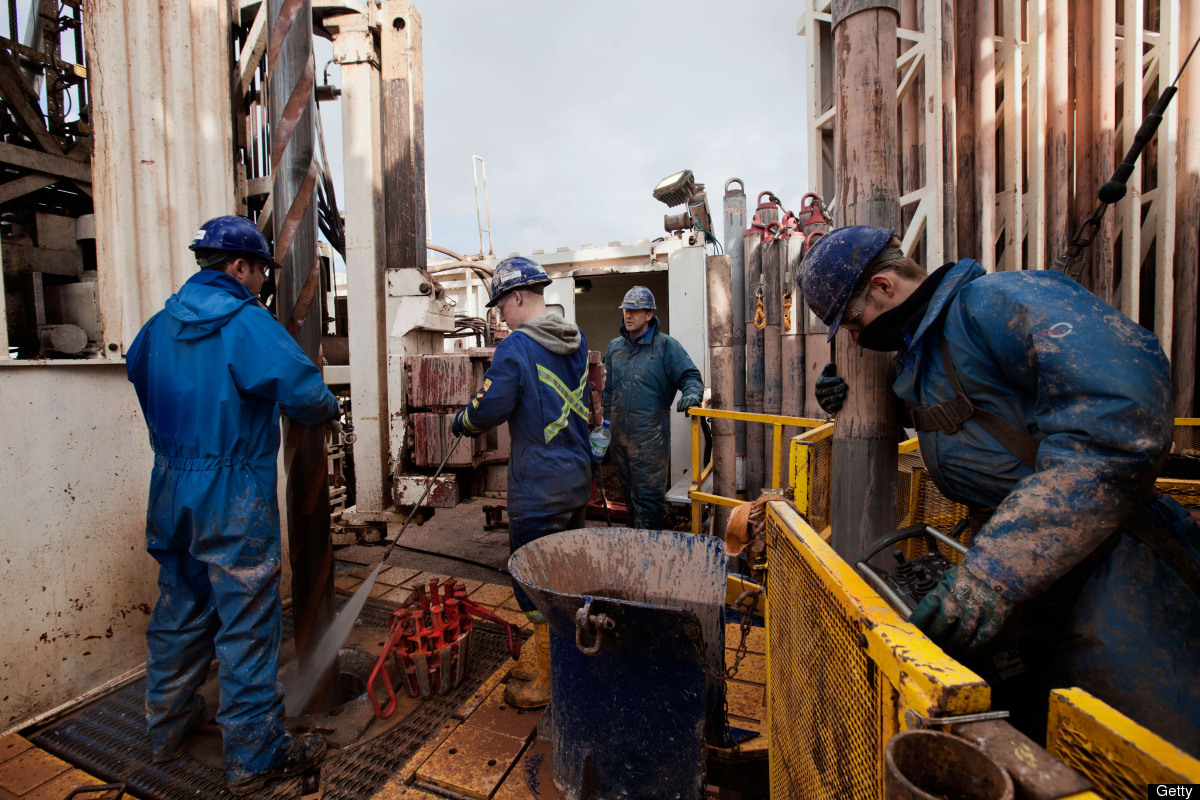OK, OK. So I used a Rolling Stones "Some Girls" reference in the headline.
But my point is -- if I have one -- that on the eve of Earth Day 2011, debate over the environment appears as contentious as ever. For instance, on the late-night lineup of
cable channel ABC Family, the Rev. Pat Robertson appeared questioning climate change as junk science. (My son had it tuned to the channel.)
Really? Pat Robertson? (He's still alive?) I shouldn't be surprised. The brutal economic downturn and televised armed conflict invading American living rooms on a daily basis have most of the country on edge. Politics is more heated than ever.
Environmental protections, climate change and clean energy look like luxuries easily jettisoned by people more interested in keeping a roof over their heads and food on the table. There's no fault in taking advantage of unease to push political agenda. Heck, leverage is the American way.
Yet, the issue transcends the conservative-liberal divide. Clean energy is not limited to the granola-crunching Sierra Club member anymore. Wal-Mart is a huge proponent of sustainability and renewable energy. And Raytheon Co. just won an Energy Star Award for Sustained Excellence from the U.S. Environmental Protection Agency for "reducing energy intensity by 3 percent in 2010 and by 22 percent since 2007" and cutting more than 2 million kWh in 2010.
That's right, Raytheon, the Waltham, Mass.-based defense contractor that produces "missiles, smart munitions, close in weapons systems, projectiles, kinetic kill vehicles and directed energy effectors for the armed forces of the U.S. and other allied nations," according to
yahoo.com finance.
Soon, I believe, a lot more of this clean energy stuff will make sense to J.Q. Public. Already, energy efficiency is moving into the corner hardware store in the form of light-emitting diode and compact fluorescent technology and programmable thermostats. Heating and air conditioning companies are even getting into the solar mode, advertising exactly what it would cost the consumer to install 10 modules.
Honest. In the Fresno Bee, which I still read despite being a casualty of its shrinking newsroom, an ad showed a system for $12,000. Tax incentives and rebates drop that by about $4,000, according to the company. That's approachable pricing, especially with summer AC power drains coming up.
On earthday.org, the site is trying to get people, organizations and corporations to embrace its "
A Billion Acts of Green" campaign. The idea -- to pledge to live and act sustainably -- has reportedly received 45 million "actions" to date and seeks to register 1 billion in advance of the Earth Summit in Rio in 2012.
And why not? Many of these cost nothing.
For instance, T. Boone Pickens went big for wind power and now is investing in natural gas, joining with investment group Perseus in a $160 million deal to build a natural gas powered vehicle, according to a
story by Katie Fehrenbacher at earth2tech.com.
Natural gas is abundant. We've got a lot of it up on Alaska's North Slope (just wait for Sarah Palin to start talking about the
gas pipeline) and huge domestic reserves in the Lower 48 that can be accessed by the increasingly controversial method of hydraulic fracturing.
There may be traction on the natural gas front soon. Deirdre Shesgreen
reported in ctmirror.org that Rep. John Larson, D-Conn., is working with Pickens to "promote legislation that would provide billions of dollars in tax incentives to spur the development and purchase of natural gas vehicles."
One of the first goals of the bill, dubbed the NAT GAS Act, should it pass would be to drive development of commercial trucks away from diesel and into the fold. But expect more stations around the country offering the fuel and more natural gas powered Honda Civics using them.
"It's abundant, it's accessible, it's American," Shesgreen quoted Larson as saying. "The events in the Middle East and the events that have happened tragically in Japan only further underscore the urgency behind this."
Ah yes. Security. There's the immediacy. Pickens also touts energy independence. Just check out his
Pickens Plan website.
Advances also are being made in algae fuel, cellulosic ethanol and isobutanol. None of this should be partisan. It's just really interesting and could pay off with huge dividends.
And by dividends, I mean jobs.
That's what it's all about. Opportunity in this industry for me is personal. We're working to assist teachers to train the next generation for jobs in clean energy through the Valley Legacy Grant. The resources come from the Workforce Investment Act. I'd like to see the kids from rural San Joaquin Valley communities with 20-plus percent jobless rates get a leg up in a growing industry. For more, check out our site,
http://www.wiasjvceo/.
But to get there, this nation's gotta chill on the rhetoric. And it comes from both sides. I can rip on the Republicans, but the greenies do the same thing.
In a
story on Huffington Post by Brenden DeMelle, executive director of
desmogblog.com, about climate-related dangers of methane emissions from shale gas fracking, a commenter who goes by the name gdauth provided perspective. DeMelle called his post "Highway to Hell," and I do appreciate the AC/DC Bon Scott reference.
"Let's see," writes gdauth. "Can't use natural gas, coal, oil, nuclear, hydro; what is left? Wind? Nope can't use that it kills birds. Geothermal? Don't have any in Florida. How about solar? The Chinese own all the factories, besides a hail storm and a tornado wiped out the solar farm that looks like h*** anyway. Besides the Chinese own all of the battery factories so what o we do at night? I guess I will go home to my cardboard box under the bridge and cook my spam over a candle."
Yep, take a bite of the big apple. Just don't mind the maggots. It's a big issue and maybe we'll figure out how to get it all down.
Photo: Courtesy
earthday.org





